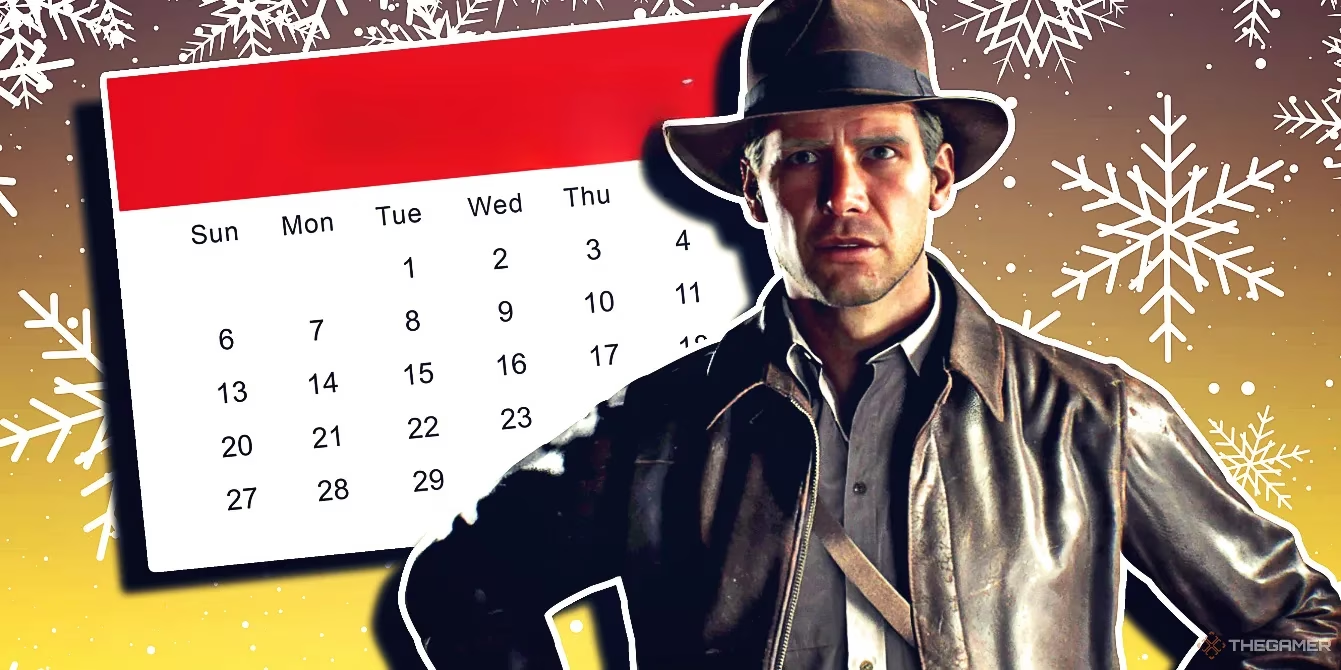The December Curse Haunting Triple-A Gaming
Discover how December releases like Indiana Jones and the Great Circle face challenges due to TGA timing, impacting awards and visibility in gaming.
I still remember booting up Indiana Jones and the Great Circle on that chilly December evening, the excitement mixing with an uneasy sense of déjà vu. As the opening credits rolled, I couldn't shake the thought: Why December? Everyone in gaming circles whispers about it—releasing a blockbuster this month is like sending a masterpiece into a black hole. The Game Awards frenzy dominates conversations, but its baffling mid-November eligibility cutoff means anything launching afterward vanishes from collective memory. By the time Geoff Keighley takes the stage, we're already chasing shiny new trailers, forgetting gems that dropped just weeks prior. It’s a brutal cycle, and watching this phenomenal Indy adventure stumble into the void feels tragically familiar.

The TGA Paradox: Celebrations That Erase
Let’s dissect this absurdity. The Game Awards bills itself as gaming’s biggest night—a glittering, mainstream spectacle where Game of the Year nominations can make or break a title’s legacy. Yet its scheduling defies logic. Unlike film’s Oscars (held in spring to assess the full previous year), TGA crammed into early December with a November 15 cutoff. Games releasing after that? They’re shoved into next year’s pool, where recency bias buries them. Think about Midnight Suns—critically adored in late 2022, commercially ignored because TGA’s afterglow had faded by January. Or Avatar: Frontiers of Pandora, drowned in holiday noise. Eric Switzer nailed it: December launches are commercial suicide.
Now, apply this to The Great Circle. Dropping on December 9, 2024—three days before TGA—was catastrophic for its awards momentum. Could it have snatched a GOTY nomination? Honestly? Maybe. I’m only halfway through, but its whip-smart pacing and globe-trotting puzzles already outshine 2024 nominees like Black Myth: Wukong (visually stunning but narratively thin) or Shadow of the Erdtree (brilliant yet niche). Xbox desperately needed this win, too. Their exclusives have floundered for years, but Indy? It’s their first genuine system-seller in ages. Yet TGA’s timing robbed it of that spotlight.
DICE Nods: Hollow Validation?
Here’s the ironic twist: industry insiders know this game rocks. The D.I.C.E. Awards—gaming’s older, classier cousin to TGA’s flashy circus—just showered The Great Circle with nominations:
🏆 Game of the Year
🏆 Adventure Game of the Year
✨ Art Direction
🎭 Character & Storytelling
🔧 Technical Achievement
A prestigious haul, right? But DICE lacks TGA’s cultural gravity. Mainstream gamers don’t livestream it; influencers don’t dissect its winners. So while this recognition soothes my soul, it’s like applauding in an empty theater. The sales bump? Non-existent. And with Grand Theft Auto VI looming in 2025, Indy’s already fading from chatter.
Why December Dooms Games
The core issue isn’t just awards—it’s human attention spans. December isn’t just crowded; it’s a cognitive gauntlet:
-
Holiday chaos: Families, gifts, travel—gaming takes a backseat.
-
Recency bias: Our brains prioritize novelty. By January, even masterpieces feel “old.”
-
Q1 avalanche: February 2025’s lineup is savage:
| Game | Hype Level |
|-----------------------|------------|
| Avowed | ⭐⭐⭐⭐ |
| Pirate Yakuza | ⭐⭐⭐⭐⭐ |
| Kingdom Come 2 | ⭐⭐⭐⭐ |
| Civilization 7 | ⭐⭐⭐⭐⭐ |
How can Indy compete? It’s buried before spring thaw. And history repeats: Midnight Suns’ commercial failure, Avatar’s missed potential—all victims of calendar cruelty.
A Personal Plea and Unanswered Questions
I’m urging you: play The Great Circle NOW. Savor its tomb-raiding tension and witty dialogue before it’s lost to the void. But this isn’t just about one game. It’s about systemic madness. Why do publishers cling to December? Short-term holiday sales? Blind tradition? And should TGA reform its calendar—push to January, perhaps—to honor the full year’s creativity? Or are we, the players, complicit in this amnesia, always chasing the next big thing while discarding yesterday’s triumphs? What legacy do we want for games that dare to launch when the world isn’t watching?